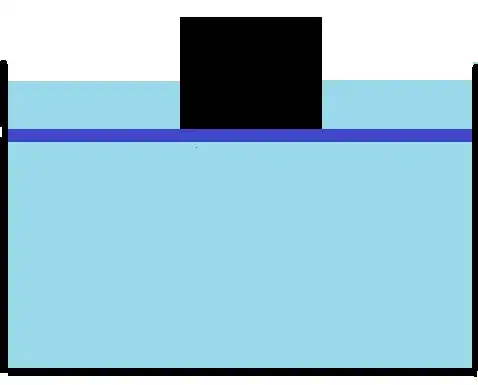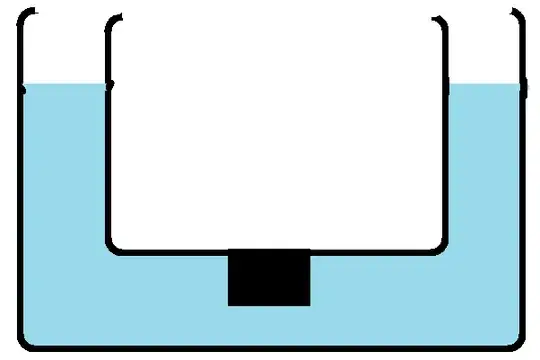So I was having a doubt of why metal block sinks in water. I was wondering why water molecules that have the capacity to exert pressures supporting the water columns at depth of say Mariana Trench cannot lift a block of iron.
With a bit of help, I came up with this explanation:
- The block is placed in water$\implies$ Pressure on the surface molecules increases.
- Lateral pressure is equal to upward pressure. (As aso explained in this question and this question)
- Moecules experiencing the extra pressure shift in other directions to regions of lower pressure(1st layer of molecules is shown by darker blue line) and the block sinks a little.
- The shifted water, that above the second layer(& above the block) and the weight of the block increase pressure on $2^{nd}$ layer of molecules and the process(sinking) continues.
- The reverse happens for floating.
These questions (1 and 2) seem to agree that pressure difference is the cause of upthrust.
- Is my explanation correct?
I am hoping it is correct, which brings us to the real question.
The same block is put in the centre of a U-tube (some kind of teleportation or maybe it is suspended by string that later dissolves) in this way
- Given sufficient height of arms of the U-tube(columns), will even metal float?(irrespective of density differences?)